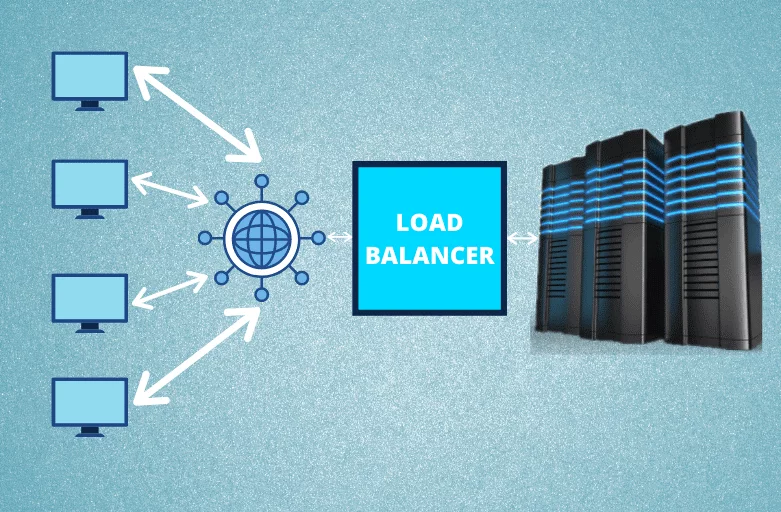Load balancing is the appropriate distribution of incoming traffic across a bunch of servers. This way it ensures that no one particular server is overloaded and thus performs with maximum efficiency.
Now load balancer as a service is the availing of this service via 3rd party providers over the cloud.
Load balancing as a service would mean that the provider would use a predetermined pattern for the distribution of traffic load.
An application or a web browser would receive a request from the user’s end and fulfill that would try to connect it with a server.
Now the load balancer, working on a set pattern would divert this request to an appropriate server.
Then the server also responds back to the browser (or an application) with the help of the load balancer.
The load balancer also pitches in by taking over the compute-intensive process of decrypting SSL encrypted data.
1. Cost-Effective
Load balancing as a service is usually cheaper than the traditional methods of handling your incoming traffic.
In addition to being cheaper, it is simpler to implement as well.
2. Increased Stability
Load balancing as a service operating over a cloud makes it a more stable solution for handling app or website traffic.
Cloud enables it to redistribute the traffic over different servers and devices with that much more ease.
3. Continuity of Operations
Making sure your website/app holds up at all times is pretty critical for any business.
It might so happen that on certain occasions that a server goes down (for whatever reason there might be) and therein a load balancer is so much helpful.
The load balancer would very quickly switch over the load to one of the other running servers.
Also Read: Top 6 Open Source Load Balancers
1. Cloudflare
Cloudflare’s load balancing solutions can be availed across 200 cities in the world. Now that’s covering a lot of territories.
It operates over a DNS which is equipped with the capability to tackle DDoS attacks.
Various Key Features of Cloudflare’s Load Balancing Solution:
a) It constantly keeps a health check to identify the set of servers that might not be equipped at handling traffic load.
b) You can get a detailed idea as to which particular set of servers are being utilized the most and then accordingly reform your infrastructural needs.
c) Setup is extremely convenient with a simple operator dashboard or REST API. You won’t need any additional hardware or software.
You’d need to contact their sales team to find the exact price for their load balancing solution.
2. Fastly
Fastly’s load balancer operates in a more sophisticated way by operating at a high-level application layer (i.e. Layer 7).
This way it deals with the actual content of each of the messages and takes routing decisions accordingly.
Some of its key features include:
a) It is capable of routing traffic across a variety of IaaS providers or be its data centers.
So, your cloud infrastructure won’t be of concern when engaged with Fastly’s load balancing solution.
b) It gives you the ability to programmatically modify, add, or delete your servers. The same changes can be made to your routing algorithm depending upon your needs.
c) It can very easily scale up its ability to manage traffic to match your needs. And that too by staying cost-effective. You won’t be even required to modify your existing infrastructure.
You can try out their load balancing solution for free for traffic costing up to $50.
Thereafter, you’d need to check out their estimator to find out the exact price for your needs.
3. F5
You can avail of F5’s cloud-based DNS load balancer services worldwide. It is also not dependent upon the type of cloud platform that you support.
Check out some of its key features here:
a) Since it’s set up is spread across the globe, that means it is able to direct a client to a load balancer which is in the closest proximity.
b) Reporting is of the highest standards here. You can visualize everything from the health of the application, how much of it is being utilized, along with your bills.
c) Comes with 24*7 support from technical experts. It can be available for free until 30th September.
See the pricing table below:
** Have created an HTML code for the table** Will add it in the drafts.
Conclusion
Load balancing as a service will work the best for you in particular if your business operates overcloud.
You can choose any of the aforementioned load balancing providers depending upon your specific needs.
Recommended For You:


